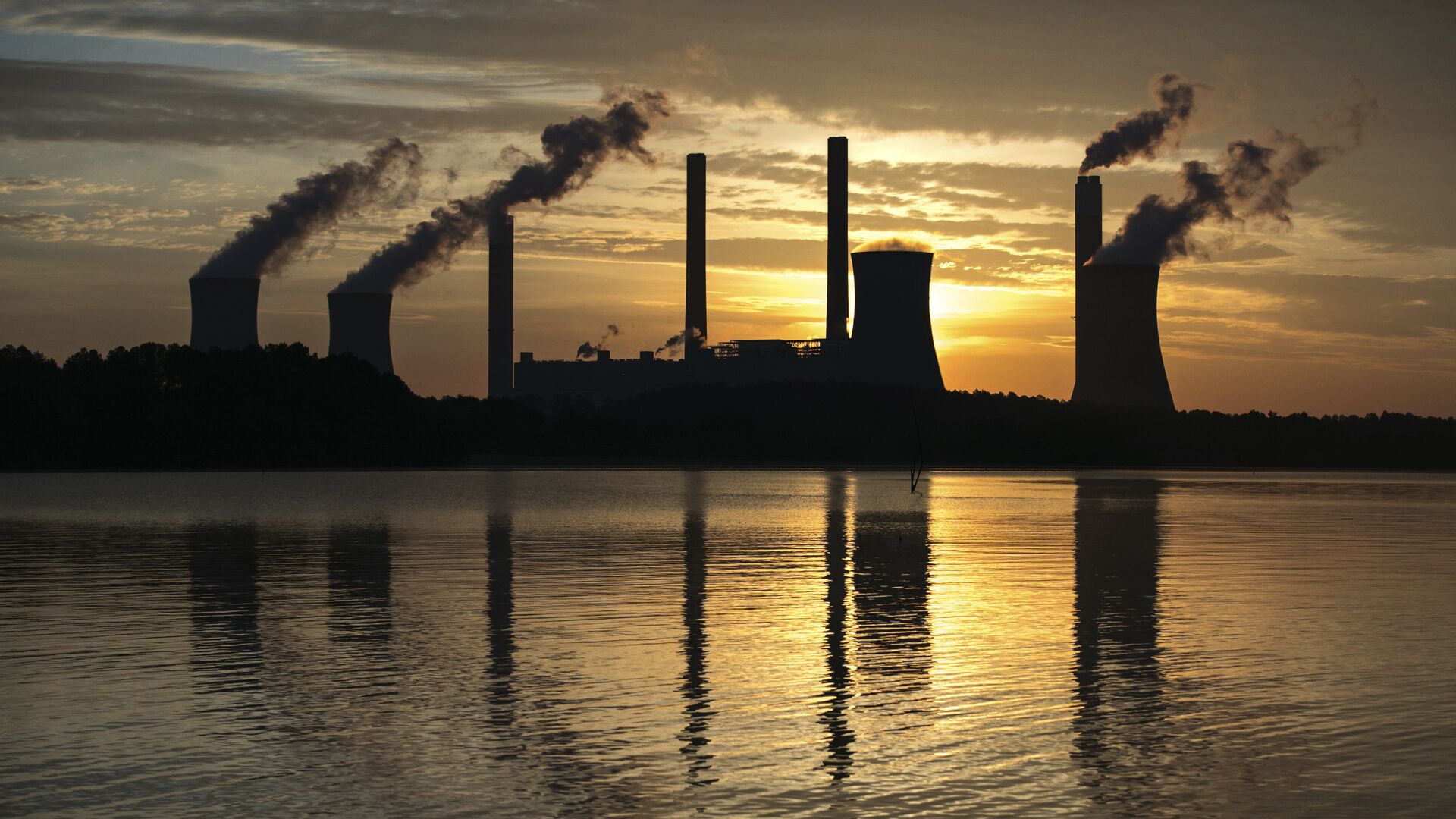GOP-Led States Take Already-Revoked Carbon Emissions Rules to US Supreme Court
22:32 GMT 28.02.2022 (Updated: 22:33 GMT 28.02.2022)

© AP Photo / Branden Camp
Subscribe
The US Supreme Court heard arguments on Monday for a case in which the conservative court could set new limits on the regulatory power of US federal government agencies.
The case is known as West Virginia v. Environmental Protection Agency, but it consolidates several other similar cases against the EPA brought by 18 other states, as well as several fossil fuel companies.
At stake is an already-revoked regulation limiting the carbon dioxide emissions of coal-burning power plants, which are the most pollutive power generation facilities in terms of global warming-fueling greenhouse gasses. The Biden administration bailed on a chance to try and re-implement the Obama-era Clean Power Plan (CPP) just one month into his administration.
The path to that situation is a convoluted one. In 2015, then-US President Barack Obama created the CPP in an attempt to move the US away from coal-fueled power plants and significantly reduce US carbon emissions. However, the following year, the US Supreme Court ordered the plan’s implementation halted while a separate court battle over its legality was being fought out.
Fortunately, the electrical generation industry followed the trends begun by the CPP’s brief life, and by 2019, the level of emissions reductions the EPA expected by 2030 under the plan had already been achieved without it.
In 2019, the Trump administration scrapped the plan entirely and the EPA, then headed by former coal industry lobbyist Andrew Wheeler, introduced the Affordable Clean Energy Rule. The rule tried to claim that the 1963 Clean Air Act, the US’ primary air quality law, sets clear and unambiguous limits on the EPA’s ability to regulate structures and installations.
On the last day of the Trump administration, a US federal appeals court struck down that rule, calling it a a “fundamental misconstruction” of the relevant law based on a “tortured series of misreadings.” That was one month before US President Joe Biden’s February 2021 decision not to use the opportunity created by the courts to try and revive the CPP.
So why would conservative states bother to challenge the CPP in the nation’s highest court? According to NPR, their goal is to get the conservative-majority Supreme Court to issue a broader ruling that could hobble US federal regulatory power.
According to one lawyer who spoke with the radio station and who fought the CPP in West Virginia, the plaintiffs believe that Congress hasn’t explicitly given the EPA the regulatory power to “reshap[e] the energy economy by determining what mix of clean power and coal-operated power we should have."
However, the high court has also sent signals that it doesn’t believe Congress has that power, either, with Associate Justices Neil Gorsuch and Clarence Thomas invoking the so-called “non-delegation” argument in past court opinions. Under that principle, they argued that the nation’s Founding Fathers had rejected the idea that Congress could delegate its powers to regulatory agencies.


